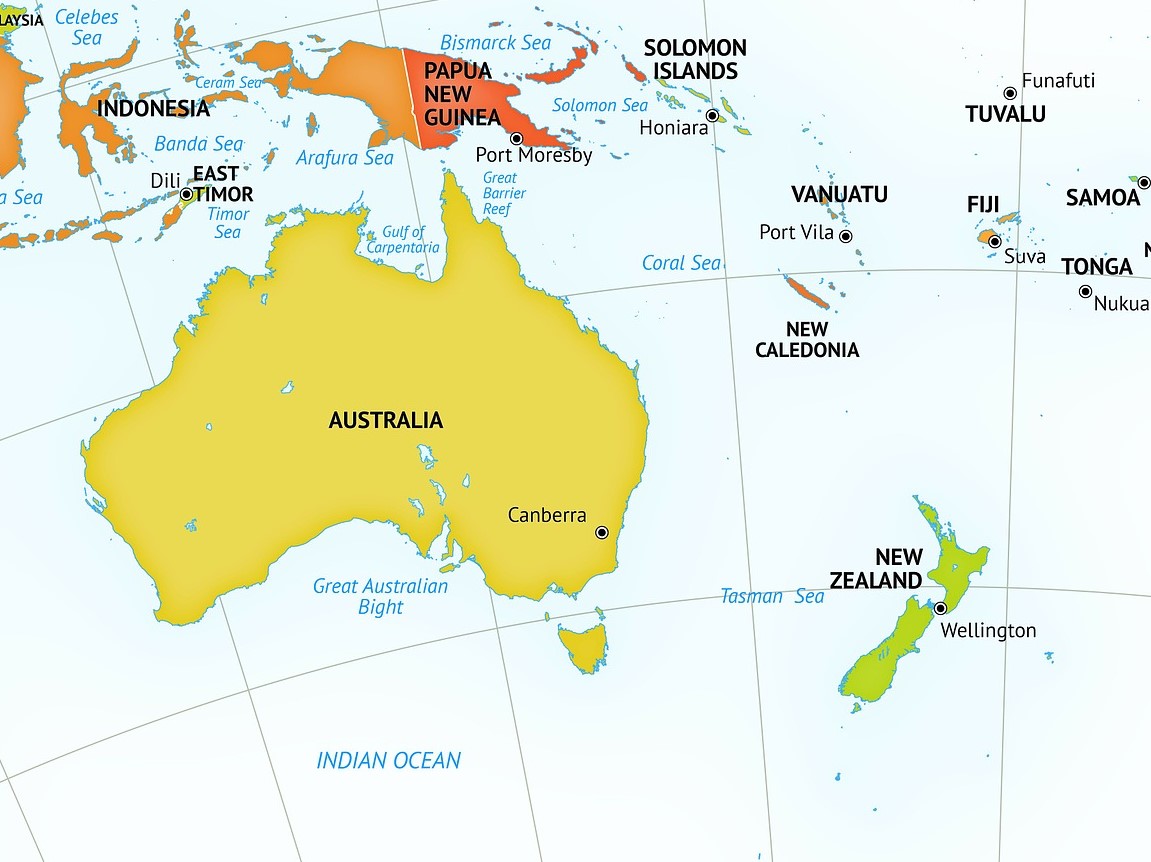Starting tonight, Australians will no longer be able to enter New Zealand quarantine-free for at least the next eight weeks.
This afternoon’s announcement was made in response to multiple outbreaks of Covid-19 across the Tasman. New Zealanders in Australia will be able to return within the next seven days, with additional requirements for those coming from New South Wales and Victoria.
The SMC asked experts to comment on the news.
Professor Michael Plank, Te Pūnaha Matatini and University of Canterbury, comments:
“The current outbreaks of COVID-19 in Australia show just how difficult it is to control the Delta variant if it finds its way into the community. The outbreak that started in Sydney has since sparked outbreaks in three other states, another alarm bell showing how easily the virus can cross borders despite efforts to contain it. We certainly can’t afford to take any chance with the Delta variant coming into New Zealand, which would almost certainly trigger a strict lockdown that could last for some time.
“When the Tasman travel bubble first opened in April, Australia had seen only a handful of community cases since January and delta was a blip on the global radar. Since then, Delta has exploded around the world causing devastating waves in multiple countries where the virus was previously under control. Australia is fighting the virus on multiple fronts, which has forced the closure of several state borders. Delta is a game changer for the pandemic and when the virus changes, we must adapt our response, or it will come back to bite us.
“This is why the government has decided to suspend quarantine-free travel from Australia for at least eight weeks. New Zealanders currently in Australia will be allowed to return home over the next week. After that anyone wanting to enter New Zealand will need a spot in MIQ. The eight-week time frame is reasonable because it’s likely to take Sydney at least that long to get their outbreak under control. Although this is a tough decision especially for people with family in Australia, it’s the best way to keep New Zealand safe from COVID-19.”
Conflict of interest statement: “I am partly funded by MBIE for research on mathematical modelling of COVID-19.”
Professor Nick Wilson, Department of Public Health, University of Otago, comments:
“The Government has made a wise decision to suspend the Trans-Tasman Bubble of quarantine-free travel for an eight-week period. The situation in New South Wales appears to be deteriorating, there have been failures with the inter-state borders in Australia, and New Zealand has not been doing a good enough job with checking pre-departure travel tests.
“This pause will give New Zealand time to make further improvements in its defences, including upgrading the Alert Level system as per a recent publication we did. This revised Alert Level system makes much better use of mass masking and targeted closures so as to minimise the risk of an economically disruptive lockdown.
“Consideration should also be given to emergency plans to allow for rapid vaccination essential workers in cities, which could help avoid cities being locked down, or at least shorten the lockdown period. For example, vaccinated truck drivers holding an approved ‘vaccination passport’ could potentially be able to drive across borders of any locked down city. There might even be a case right now for prioritising the vaccination of essential workers in major cities before finishing vaccinating those in Group 3. But the benefits and the costs of this shift need to be carefully considered given the desirability of keeping momentum with the current vaccination programme.”
No conflict of interest.
Professor Michael Baker, Professor of Public Health, University of Otago, Wellington, comments:
“The decision to suspend quarantine free travel (QFT) from all of Australia for at least eight weeks is understandable. The green zone with Australia has achieved a great deal in terms of demonstrating the benefits of careful risk management in allowing two-way travel with Australia for several months.
“However, there has been growing concern about the safety of this arrangement for several reasons. In particular, the increasing dominance of the more infectious Delta variant of the Covid-19 virus, which has made outbreaks harder to control in Australia, and also in New Zealand if the virus was introduced here. There have been examples of infected people carrying the virus across state borders within Australia, which threatens the security of the QFT arrangement, which relies on knowing that the virus is being contained within specific jurisdictions.
“Possibly of greatest concern is the escalating outbreak in New South Wales, which could threaten pandemic containment and elimination across Australia. While it might have been possible to sustain the QFT with selected states, such as Tasmania, which have maintained elimination very effectively, the benefits of doing this were obviously not considered worthwhile given the challenges and the limited benefits (compared with travel to and from the far more populous states).
“The good news is that Australia appears fully committed to Covid-19 elimination and has the resources and expertise to regain that position.”
No conflict of interest.
